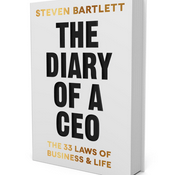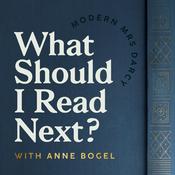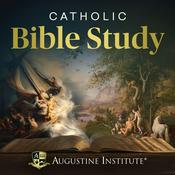45 episodes

Medieval Exegesis
06/1/2026 | 1h 5 mins.
In this episode of The Classical Mind, hosts Father Wesley Walker and Dr. Junius Johnson dive deep into the fascinating, complex topic of Medieval Exegesis—”specifically how the medievals read the scriptures.”Moving beyond single book analysis, this discussion traces the history of Christian exegesis from the Patristic era (Paul, Origen) to the evolution of the foundational Four Senses of Scripture (literal, allegorical, moral, and anagogical).Discover the critical, often-misunderstood meaning of the Literal Sense and learn how this ancient, nuanced method of biblical interpretation offers powerful intellectual tools for solving modern-day false dichotomies.Endnotes* Junius: The Mystical Ark by Richard of Saint Victor* Wesley: The Selected Spiritual Writings of Hugh of Saint Victor Get full access to The Classical Mind at www.theclassicalmind.com/subscribe

Our Top Reads of 2025
30/12/2025 | 22 mins.
In this special year-end bonus episode, hosts Father Wesley Walker and Dr. Junius Johnson take a break from their usual Great Books discussion to share their personal Top 5 favorite books read this year—works that fell (mostly) outside of the main Classical Mind reading list.The Classical Mind is a reader-supported publication. To receive new posts and support our work, consider becoming a free or paid subscriber.JuniusFrankenstein by Mary ShelleyPhantastes by George MacDonaldThe Liberation of Jerusalem by Torquato TassoThe Lord of the Rings by J.R.R. TolkienThe Daevabad Trilogy by S.A. ChakrabortyWesleyThe Meaning of Christian Brotherhood by Joseph Cardinal RatzingerOn Great Fields: The Life and Unlikely Heroism of Joshua Lawrence Chamberlain by Ronald C. WhiteAttack Upon Christendom by Soren KierkegaardEverything Sad is Untrue by Daniel NayeriNietzsche is My Brother by Bridget Edman, O.C.D. Get full access to The Classical Mind at www.theclassicalmind.com/subscribe

Bill Budd, Sailor
02/12/2025 | 1h 9 mins.
In this episode of The Classical Mind, Junius and Wesley dive deep into Herman Melville’s Billy Budd, Sailor — a haunting naval novella exploring innocence, evil, law, mutiny, and biblical symbolism aboard a British warship during the Napoleonic era.Melville’s final, posthumously published work blends gripping maritime drama with profound moral and theological questions. We unpack what Makes Billy Budd a Great (and Strange) Work, Historical and Naval Context, Biblical Themes, and how memory and myth are related. Endnotes:* Junius: Bartleby, the Scrivener* Wesley: Billy Budd (1962) Get full access to The Classical Mind at www.theclassicalmind.com/subscribe

The Classical Mind Goes to the Movies: Frankenstein (2025)
13/11/2025 | 1h 5 mins.
In this episode, Junius and Wesley take on the latest film adaptation of Frankenstein, asking what makes a great adaptation of a classic work — and whether this one succeeds. From Mary Shelley’s 19th-century vision of creation and responsibility to modern cinematic retellings, they explore how filmmakers interpret, distort, and occasionally deepen the original novel’s moral and theological questions. Along the way, they consider what’s lost and what’s gained when literary imagination meets the visual power of film.Be sure to check out the stage adaptation by A.S. Peterson that Junius speaks about a few times in the episode. Get full access to The Classical Mind at www.theclassicalmind.com/subscribe

The Proslogion by St. Anselm
28/10/2025 | 1h 10 mins.
In this episode, Father Wesley and Dr. Junius dive deep into St. Anselm’s Proslogion, the short yet monumental work that introduced one of the most enduring and debated arguments in the history of philosophy and theology: the ontological argument for God’s existence.The hosts explore Anselm’s background as monk, abbot, and Archbishop of Canterbury, highlighting his tumultuous life amid royal and papal conflict, his intellectual lineage from Augustine and Boethius, and his place at the dawn of scholasticism. They also reflect on how his prayerful approach to theology—fides quaerens intellectum (“faith seeking understanding”)—blurs the line between philosophical proof and devotional meditation.Endnotes* Junius: The Prayers and Meditations of St. Anselm* Wesley:* “A Gift Exceeding Every Debt” by David Bentley Hart* “Anselmian Apocatastasis: The Fitting Necessity of Universal Salvation in St Anselm’s Cur Deus Homo” by Roberto J. De La Noval Get full access to The Classical Mind at www.theclassicalmind.com/subscribe
More Arts podcasts
Trending Arts podcasts
About The Classical Mind
Listen to The Classical Mind, ill-advised by Bill Nighy and many other podcasts from around the world with the radio.net app

Get the free radio.net app
- Stations and podcasts to bookmark
- Stream via Wi-Fi or Bluetooth
- Supports Carplay & Android Auto
- Many other app features
Get the free radio.net app
- Stations and podcasts to bookmark
- Stream via Wi-Fi or Bluetooth
- Supports Carplay & Android Auto
- Many other app features


The Classical Mind
download the app,
start listening.







































